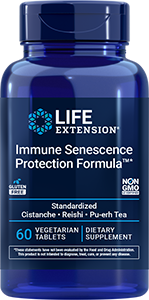Influenza

Protection Against the Flu
By Jennifer Rust
Influenza, commonly referred to as the flu, is a viral respiratory infection. While the symptoms can be like the common cold, the flu is caused by a different type of virus and is much more severe than the average cold. Symptoms of influenza include;
- sore throat,
- fever,
- chills,
- headaches,
- coughing,
- weakness,
- muscle pain and discomfort.
In serious cases influenza can lead to pneumonia.
How is the flu spread?
The flu is spread by airborne methods, such as sneezing or coughing. The Centers for Disease Control (CDC) estimate that 5%-20% of the population in the US is infected with the flu every year. This results in 36,000 deaths and 200,000 hospitalizations annually. Children, the elderly and people with chronic illnesses such as heart disease or asthma are particularly at risk for complications associated with the flu, such as pneumonia.
What is the flu season?
The flu is a seasonal virus, meaning that it circulates in the population more heavily during certain parts of the year. In the US, flu season is usually considered November thru April but some years it can last from October to May.
Testing
STD Tests
STD Testing at-Lab (Near Me)
STD Tests at-Home (Kits)
Fertility Tests
Women's Fertility Test at-Home
Health Tests
See All >>
What is influenza vaccination?
Vaccination involves inoculating a person with a dead or weak version of the virus. In response to inoculation the body develops antibodies that can fight off a real infection.
It generally takes two weeks for these antibodies to develop in the body, so vaccinations are most effective if taken early during flu season. The CDC states that vaccination is the most effective method of preventing the flu.
How are vaccinations administered?
Vaccinations can be administered through two methods. The most common is the flu shot. The shot contains a dead version of the virus that cannot cause illness. The newer method of vaccination is a nasal spray known as FluMist®.
Unlike the shot, FluMist® contains a weakened version of the virus. The nasal spray usually does not cause illness, but can sometimes cause minor symptoms, such as runny nose or fatigue.
How often do I need to get vaccinated?
Over time the immunity conferred by vaccination declines. So, it is important to get vaccinated every year to remain protected from the flu. In addition, the strains of flu that are most commonly being circulated in the population change from year to year. A current vaccination is the best form of protection against the flu.
What are antiviral flu drugs?
Antiviral drugs work by blocking reproduction of the virus after infection. Influenza antiviral drugs must be prescribed by a healthcare professional. While vaccination is the most effective method for preventing the flu, antiviral drugs can be used for prevention or treatment of the flu.
Antiviral drugs are most commonly used for prevention in areas where many people have been infected with the flu and there is a danger of outbreak. They may also be used for flu prevention in people who are particularly at risk for complications associated with the flu.
Antiviral drugs are also recommended for treatment of the flu. Antiviral drugs are most effective if taken within two days of the appearance of flu symptoms. It usually reduces the duration of the flu by one or two days. The most common side effects of influenza antiviral drugs are nausea.
Conclusion
When is the best time to talk to a Doctor about preventing and treating the flu? Talk to your Doctor before flu season begins to protect yourself from illness.
Resources
- CDC – Centers for Disease Control
- Reliable Sources
 Disclaimer: Articles not intended to Diagnose, Treat, Cure or Prevent Diseases.
Disclaimer: Articles not intended to Diagnose, Treat, Cure or Prevent Diseases.
Infections | Education | Products | Testing


